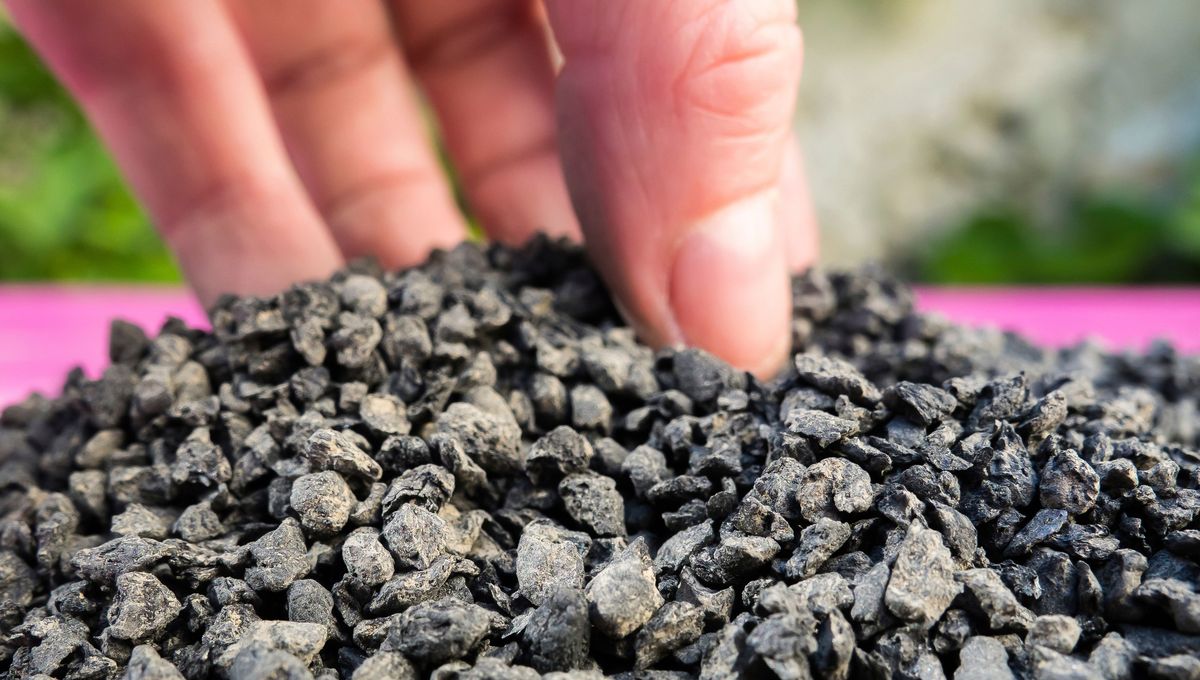Soil depletion in France and around the world is an ecological disaster that is too often ignored. In its latest report the
United Nations Convention estimates that 40% of the land on the planet is degraded and that if nothing is done by 2050, almost all of the soil on the Earth’s surface could be affected. Yet 95% of our food comes directly or indirectly from the land, according to the Food and Agriculture Organization of the United Nations (FAO).
Soils are also allies against climate change. Organic matter buried in soil around the world stores between 1.5 trillion and 2.4 trillion tonnes of carbon. It is “two to three times more than in the atmosphere”note
the Environment and Energy Management Agency (Ademe) who explains: “By taking CO2 from the air via photosynthesis, a plant absorbs carbon. When it loses its leaves, flowers, fruits or dies, it decomposes and restores this carbon in the form of organic matter that is buried deeper and deeper in the soil over time.The soil is then enriched in carbon and other nutrients, again taken up by the plant.“
It is thanks to this work that the soils are fertile. By degrading plant waste, small soil animals make it usable by plants, for their nutrition. Thanks to them, the soil is also more porous, allowing air to pass through, retaining water and allowing roots to penetrate deeper to nourish the plants.
But it takes thousands of years for this layer of humus and topsoil to form and much less to deplete the soil. Always
according to Ademeseveral observations already show that the levels and stocks of organic matter in soils have been declining for several decades in certain French regions, for example in Beauce, Brittany, Franche-Comté, Landes de Gascogne, Piedmont Pyrenean.
Human activity is the primary cause: overexploitation, intensive agriculture, fertilizers and pesticides disturb the natural balance of the soil and lead to its depletion.
Biochar, the new black gold
Inspired by Terra Preta, the black soils of Amazonia created by the pre-Columbians by the accumulation of charcoal, shards of pottery and leftover food, biochar is an organic amendment resulting from the pyrolysis of biomass which can be wood, vegetable waste or even cocoa pods. Incorporated into the soil, it develops soil fertility, particularly effective for soils in tropical areas, where it corrects acidity while retaining more water and nutrients.
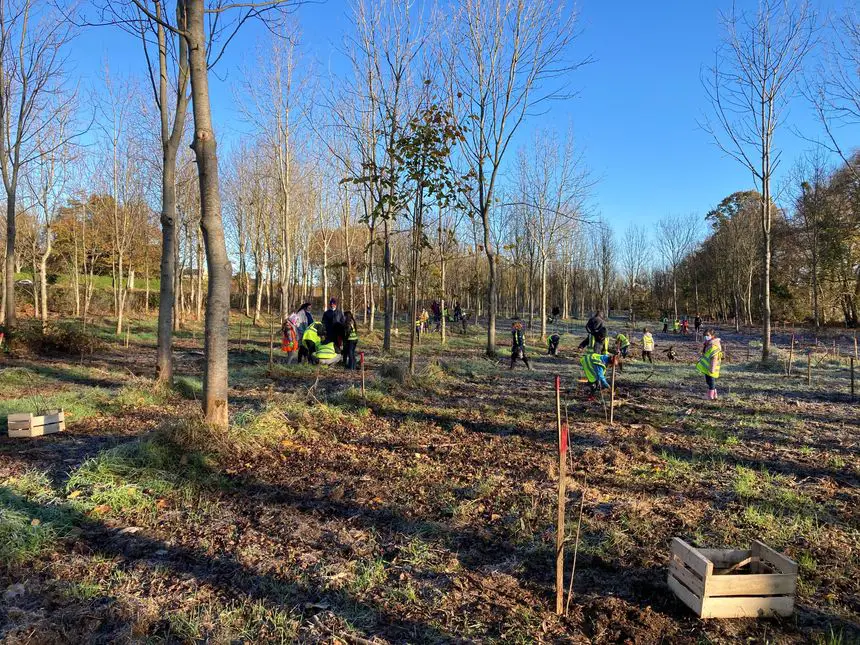
It was by looking for a natural solution for the depleted soils of the plantations he owns in northern Brazil that Stephane Ledentu, a Norman logger rediscovered this ancestral method. He calls on the expertise of EMBRAPA, the equivalent of INRAE in Brazil, to develop a biochar whose good results encourage him to develop his production in France.
Under the brand of its young subsidiary Terra fertilis, in 2017 it inaugurated a first industrial pilot on its Argentan site in the Orne department. The process involves heating the heartwood of the wood to a very high temperature, 600 to 700 degrees, in an oxygen-deprived environment. It took no less than 5 years to develop an innovative system, self-sufficient in energy and without CO2 emissions, explains Thomas Gourdel, the technical director of Terra fertilis. The patented pyrolyser works by recovering the oils and gases that will be used for combustion.
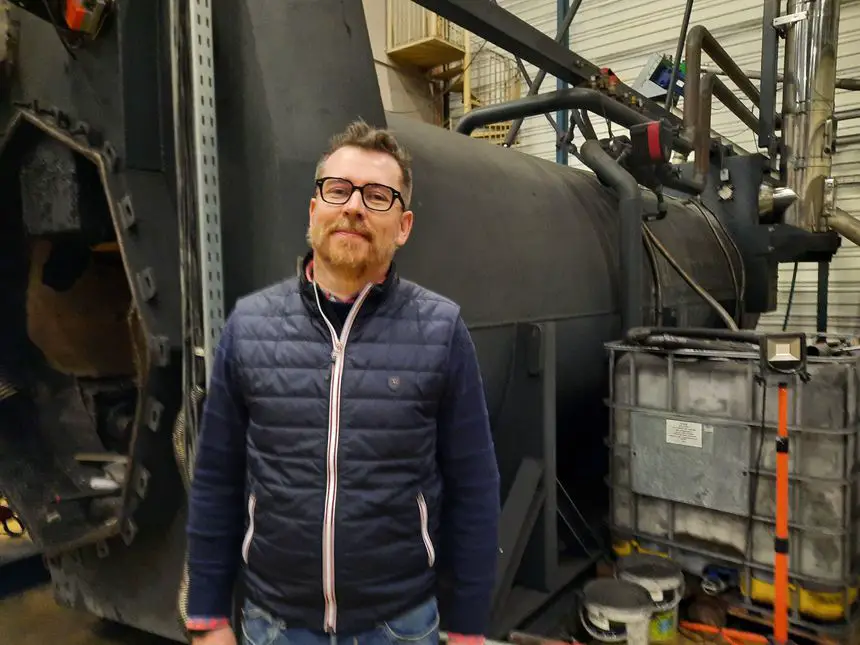
On the raw material side: no clear cuts, no timber, but samples “with tweezers” in forests managed sustainably by the SLB group assures the founder Stéphane Ledentu. The types of wood used are part of the secret recipe and have their importance, he underlines, for producing a biochar that he describes as premium, that is to say the most carbon-rich possible, i.e. around 95%.
Because as Dominique Ledentu, the commercial director, reminds us: “there is biochar and charcoal” and it is far from being the same thing. While in Northern Europe, biochar has classification criteria, in France none of this has yet been clarified, maintaining confusion that can be detrimental to the soil because using charcoal, such as that that we use for barbecues would be like putting used oil in the ground, she warns.
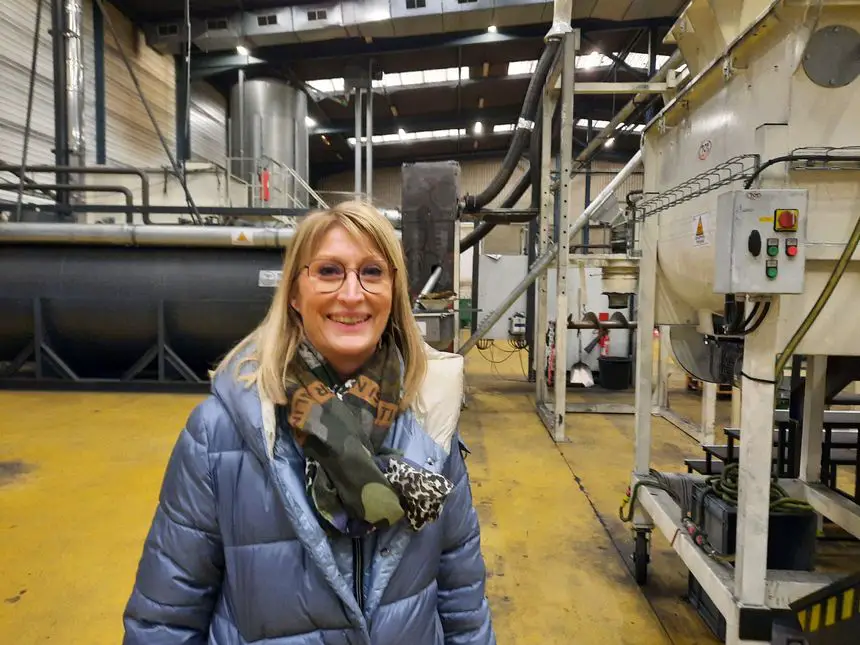
The biochar produced by Terra fertilis has obtained European ECB certification and can be used in organic farming and permaculture. The only one to have its marketing authorization today, since 2021 Terra fertilis has been the first producer to be able to market biochar in France, at the rate of 300 tonnes per year. To double its production in 2024, the company will install a second pyrolyzer at its Argentan site at the end of the year.
Solution praised by the IPCC
Although still little known in France, biochar has multiple advantages cited many times in the latest IPCC report, such as a substance for regenerating soils and a long-term carbon sequestration solution.
On the agricultural level, it is the missing link between organic matter and the soil summarizes Stephane Ledentu. Concretely, in general, there is not enough carbon in the soil, depleted by plowing and chemical inputs, which hinders the decomposition of organic matter. Biochar, being highly carbonaceous and of porous structure, not only enriches the soil but also acts as a sponge that retains water and nutrients, thus limiting watering or irrigation and preventing soil leaching. It helps the development of microbial life and thus aerates the earth which has become too compact, packed down by the regular passage of agricultural machinery.
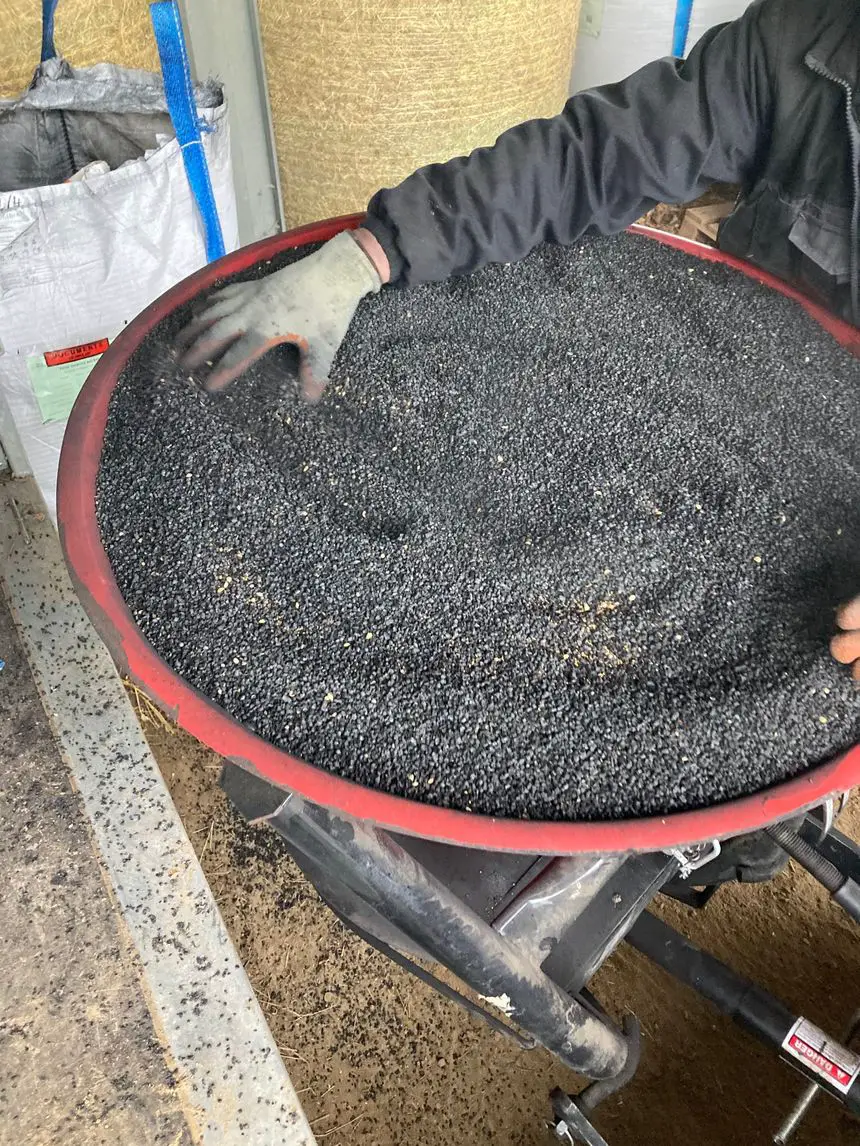
From a climatic point of view, biochar is a powerful carbon sink, because it makes it possible to extract and trap the carbon contained in plants for several hundred years. “When it is of good quality, 1 ton of biochar can trap an average of 3 tons of carbon,” says Stephane Ledentu, who sells his carbon credits, which he has certified by Puro.earth, a marketplace dedicated to the elimination voluntary carbon reduction by companies. Carbon credits which today sell for 350 euros per tonne. A rapidly expanding source of income that will enable Terra fertilis to consolidate its business model and duplicate its industrial pilot on its various forestry sites that it holds, particularly in Romania.
If biochar attracts financiers, its use in agriculture is not yet a reflex in France. The Norman company makes only 20% of its sales there, mainly to local authorities, foresters and a few market gardeners. For individuals, the sale is mainly done on the internet.
But the rush for this new black gold has begun, more and more companies are embarking on the adventure. If he is not the king of com’ admits Stéphane Ledentu, he is no less a pioneer, a man in the field who has taken the time to experiment with all the stages of biochar production.

